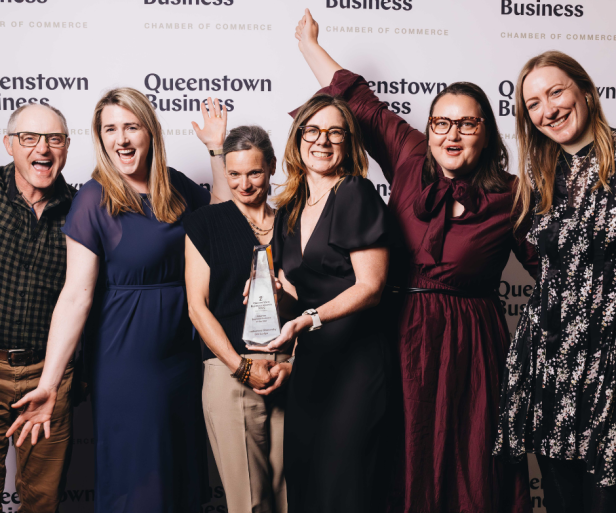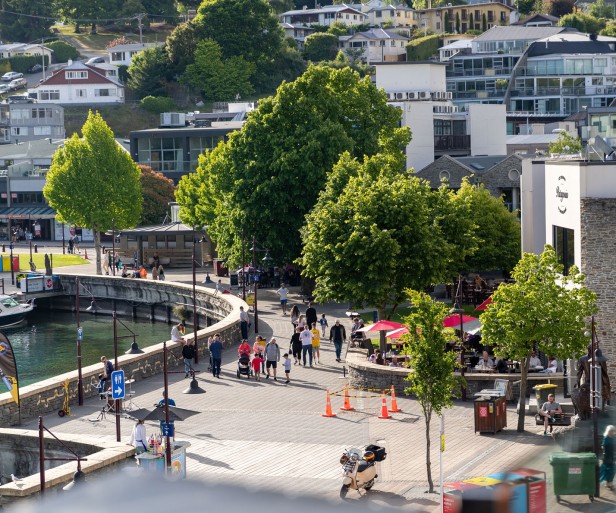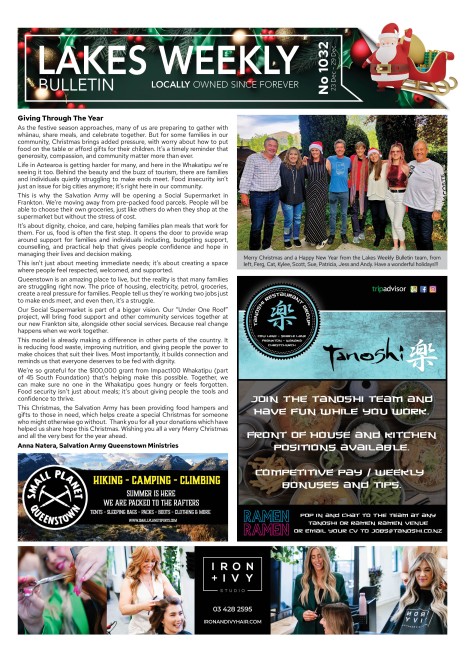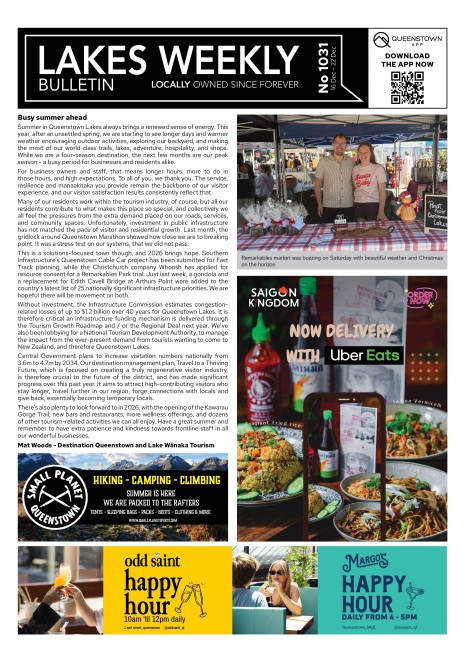The numbers don’t stack up for landlords
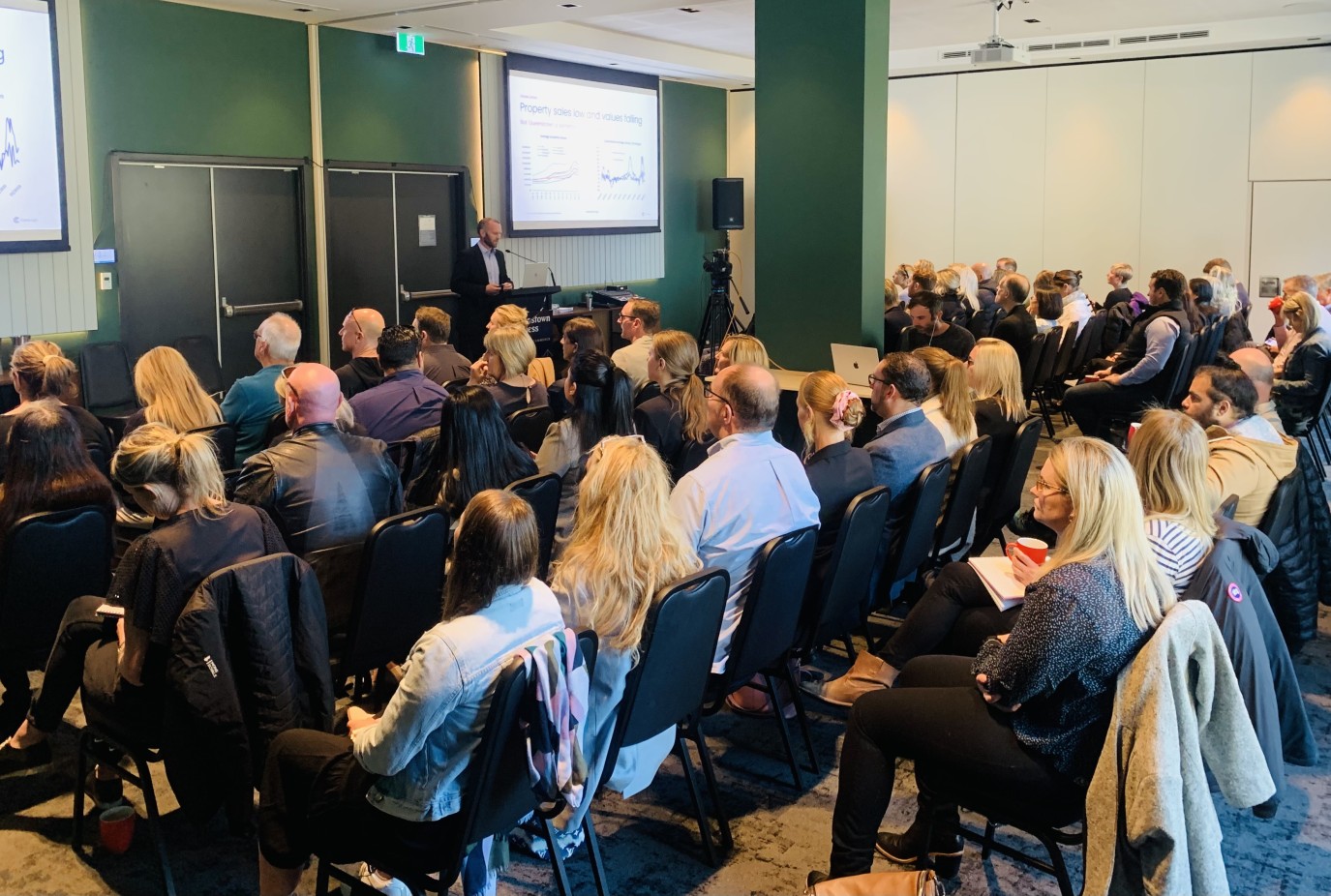
The complexities of Queenstown’s worker accommodation shortage were laid bare at the first Staff Housing Information Series, run by the resort’s Chamber of Commerce.
Guest speaker Kelvin Davidson, chief economist for property data specialists Core Logic, ran through the numbers and one stat stood out above all others.
The gross rental yield for Queenstown Lakes is between 1.5% and 2%, compared with a national average of 3.5%.
“Gross rental yields are a basic measure of the relative merits of investing in property,” Davidson says.
“Even the national figure is pretty low by past standards, but Queenstown is even lower. Rents have been rising but the prices are very high.”
Queenstown Lakes median house price is around $1.7 million.
“So, you’ve got to have the capital at the start to actually do it and then yields haven’t really risen off the floor yet.”
No surprise then, that the town’s workers are struggling to find a place to live. The combination of high prices, higher interest rates, healthy homes standards and the removal of mortgage interest-deductibility means fewer property owners are able to make the numbers work to become, or remain, landlords.
Despite that, some 45% of property transactions are by multiple property owner (MPO) mortgage investors or MPO cash investors.
“So, people are doing it and are still making it pay but I suspect that external wealth and outside factors are playing a role in that and, of course, these properties could be used for Airbnb, holiday homes, or whatever.”
For businesses looking to buy property for staff accommodation, the numbers present similar problems and are unlikely to get better.
Davidson told Chamber members, Queenstown remains an outlier and prices are unlikely to decline by 10% or 20% like elsewhere.
“And, buying property for staff, there’s no such thing as a free lunch. It’s great for your own business, obviously, but in aggregate, it just takes property out of the rental bowl and puts it into ownership. It doesn’t change the overall stock combination.”
There were some opportunities for landlords in some areas, such as Frankton, where the rental yield was relatively reasonable, at 3.3%. The median value was $1.1m but there were properties available for $800k at the lower end of the market.
Beyond that, and the National Party winning an election and keeping its promise to reinstate deductibility, new builds could provide some relief, although not at the pace to help the current crisis.
Investors are still keen on Queenstown new builds, which offer interest deductibility, lower deposits and less maintenance, and are a huge part of its market share.
That’s not great for first-time buyers competing with them but steering investors towards new builds creates more housing stock “that could potentially be rented out to the younger workers”.
Meanwhile, Queenstown Lakes District Council’s Strategic Growth Manager Anita Vanstone told the Chamber audience there’s the demand to double district’s the housing stock over the next 30 years, a further 17,000 homes, including 7000 affordable homes.
There’s enough zoning to accommodate that number but the market is not delivering, so QLDC is working with Kai Tahu, The Crown and Queenstown Lakes Community Housing Trust on the joint housing action plan.
“The draft outcomes are affordable housing options for our community our increased, a range of housing choice exists for everyone, homes in the district, a healthy, warm, secure, and sustainable and stronger partnerships that accelerate delivery,” she says.
Her team’s remit has also been extended to look at the rental market too and it is in the process of appointing a dedicated housing officer.
Recent QLDC successes include streamlined planning process approval for the rezoning of Ladies Mile from rural to urban and the team is advocating around affordable housing, short-term letting, accommodation supplement, and alternative funding tools.
It’s also looking to gather evidence to present to Government around the need for public housing.
“We’re seeing no public housing investment across our district but we’re hearing stories that there is a need. So, we need to work with our social service providers and make sure we’re getting that evidence story back to government.”
Challenges remain from the market, however. There’s been a backlash from developers against the council’s inclusionary zoning policy, which would see developers pay towards affordable housing, and attempts to control the number of Airbnb properties were defeated in the Environment Court.
“20% of our housing stock is unoccupied and we have a high proportion of short term to long term rentals. Our building costs are 36% higher than the national average and our housing issues have long term effects in terms of recruitment, staff retention and well-being.”
One member of the audience, Nomad Safaris David Gatward-Ferguson, confirmed this in the Q&A session, saying he’d lost five hires because they were in hostels but couldn’t find permanent accommodation.
A second session was scheduled for 18 April, featuring MyHR talking about the contractual implications of housing workers, and also Five Peaks accounting on the tax implications. The third session, featuring Queenstown Lakes Community Housing Trust and Housemart, is due to take place on 5 May.
The Chamber will make a toolkit available for businesses later this month.


